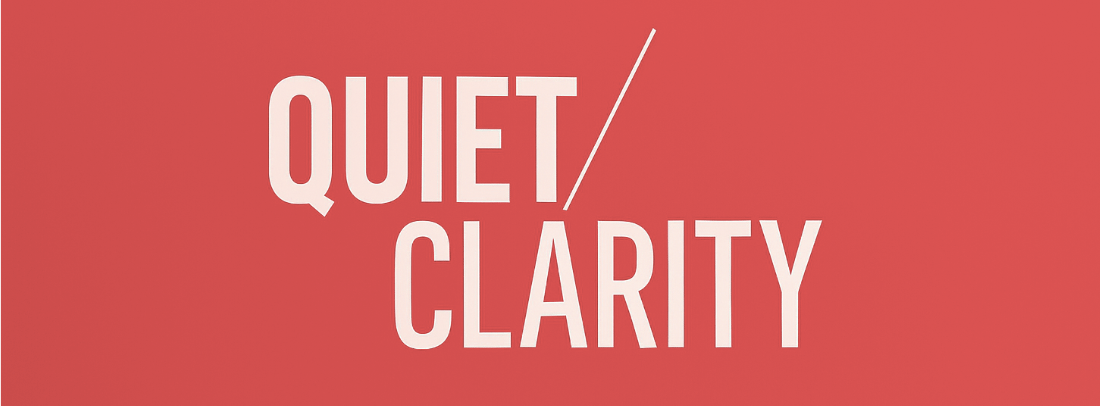
Quiet Clarity is a 2x/week newsletter and podcast for people who want to build a life of presence, depth, and deliberate intention.
You know that conversation you need to have but keep avoiding.
The decision that sits heavy in your chest.
The truth you pretend not to see.
You tell yourself it's easier this way, that if you don't face it, maybe it'll resolve itself.
But avoidance doesn't stop reality. It only delays it.
And everything left unsaid becomes another bar in the prison you build for yourself.
What threshold are you standing at, pretending the door doesn't exist?
Where It Showed Up in My Life
I was recently reflecting on a relationship that ended.
For years, I cherished this person, but we both knew we were heading separate ways in our careers.
Instead of talking about what to do next, I resisted.
I told myself if we didn't talk about it, maybe we wouldn't have to face the inevitable.
Over time, the relationship faded—not from a single moment, but from everything left unsaid.
If I had faced that conversation head-on, we could have parted with clarity instead of uncertainty.
Maybe we would have found a way forward. Maybe not.
But at least we wouldn't have drifted into silence.
When did I start believing that avoiding pain would prevent it?
What the Wisdom Reveals
Nelson Mandela spent 27 years in a tiny cell on Robben Island.
An 8x7 foot box. Cut off from the world. His children growing up without him.
He was imprisoned for standing against apartheid—a system designed to strip millions of their humanity.
For nearly three decades, he had every reason to let rage consume him.
The people who locked him away continued their oppression.
His youth vanished behind bars.
His family lived without him.
Most people would walk out planning revenge. Nobody would blame them.
But during those 27 years, Mandela did something else.
He studied. He learned Afrikaans—the language of his oppressors.
He secretly negotiated with the very people who imprisoned him.
When he was finally released in 1990, the world expected anger.
Instead, they got something unprecedented.
Mandela ran for president and won.
Then he shocked everyone: he incorporated his former oppressors into his government.
The people who tortured him now worked alongside him.
At a rugby match in a mostly white stadium, he wore the green and gold jersey—symbol of the apartheid regime.
The crowd went wild.
Mandela had every reason to avoid reconciliation, to choose the easier path of revenge.
But he knew something profound: on the other side of the hardest threshold lies transformation.
Not just for him, but for an entire nation.
He could have avoided the discomfort of forgiveness.
Instead, he stepped through it and changed history.
The prison couldn't hold him because he refused to let resistance imprison his future.
How I'm Trying to Live Now
What prison am I building from the conversations I'm avoiding?
Our brains are wired to avoid pain—ancient programming from when threats meant death.
But modern resistance rarely protects us. It just keeps us from evolving.
I've learned to see resistance differently now.
It's not a stop sign. It's a signal that I'm at a threshold.
The thresholds we avoid:
Having the hard conversation that could change everything
Making the decision that chooses growth over comfort
Admitting the truth we already know deep down
Taking the risk that leads to something bigger
Walking away from what no longer serves us
Think back to making your first real friend.
Standing there, terrified to say hello.
What if they think I'm weird? What if I say something dumb?
But then someone took the first step: "Hey, what's your name?"
And the resistance vanished.
That moment you almost avoided became the start of something beautiful.
Your brain isn't protecting you from danger anymore.
It's protecting you from growth.
Everything you want is on the other side of the discomfort you're avoiding.
The conversation. The decision. The truth.
Step through.
Because avoidance doesn't prevent pain—it just ensures you'll face it alone, without clarity, in a prison built from everything you left unsaid.

